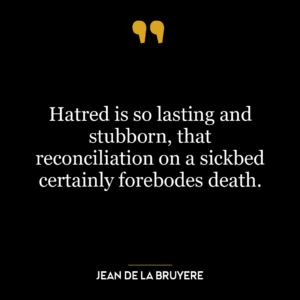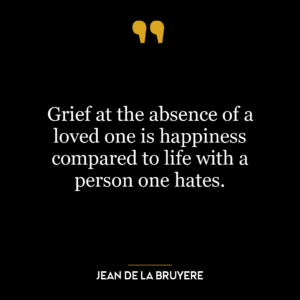This quote encapsulates the concept of unconditional love and forgiveness, urging individuals to love even those who harbor ill feelings towards them, and to love their neighbors despite any mistrust. It is a call to rise above personal prejudices, biases, and negative emotions, and to cultivate a sense of universal love and compassion.
The first part of the quote, “to love them that hate you,” suggests that one should not reciprocate hate with hate, but rather with love. This is not about accepting or endorsing someone’s harmful actions, but about not allowing their negativity to infect your own heart. It’s about maintaining your own inner peace and humanity.
The second part, “to love your neighbor even though you distrust him,” implies that love should not be conditional upon trust. It highlights the ability to separate a person’s actions from their inherent worth as a human being. Just because you distrust someone based on their past actions does not mean you should withhold love or kindness from them.
Applying this idea in today’s world could potentially transform conflicts on both personal and global scales. In personal development, it encourages individuals to let go of grudges, forgive, and cultivate empathy, even when it is difficult. This can lead to inner peace, emotional growth, and healthier relationships.
On a broader scale, this principle can be applied in resolving societal and global conflicts. If nations and communities can learn to love and understand each other despite past mistrust, it could pave the way for more peaceful coexistence and cooperation. It encourages dialogue and understanding over conflict and division, promoting a more harmonious world.
However, it’s important to note that this concept does not advocate for allowing oneself to be mistreated or abused. It’s about maintaining love and compassion in one’s heart, but that should never come at the expense of one’s own well-being and dignity.








